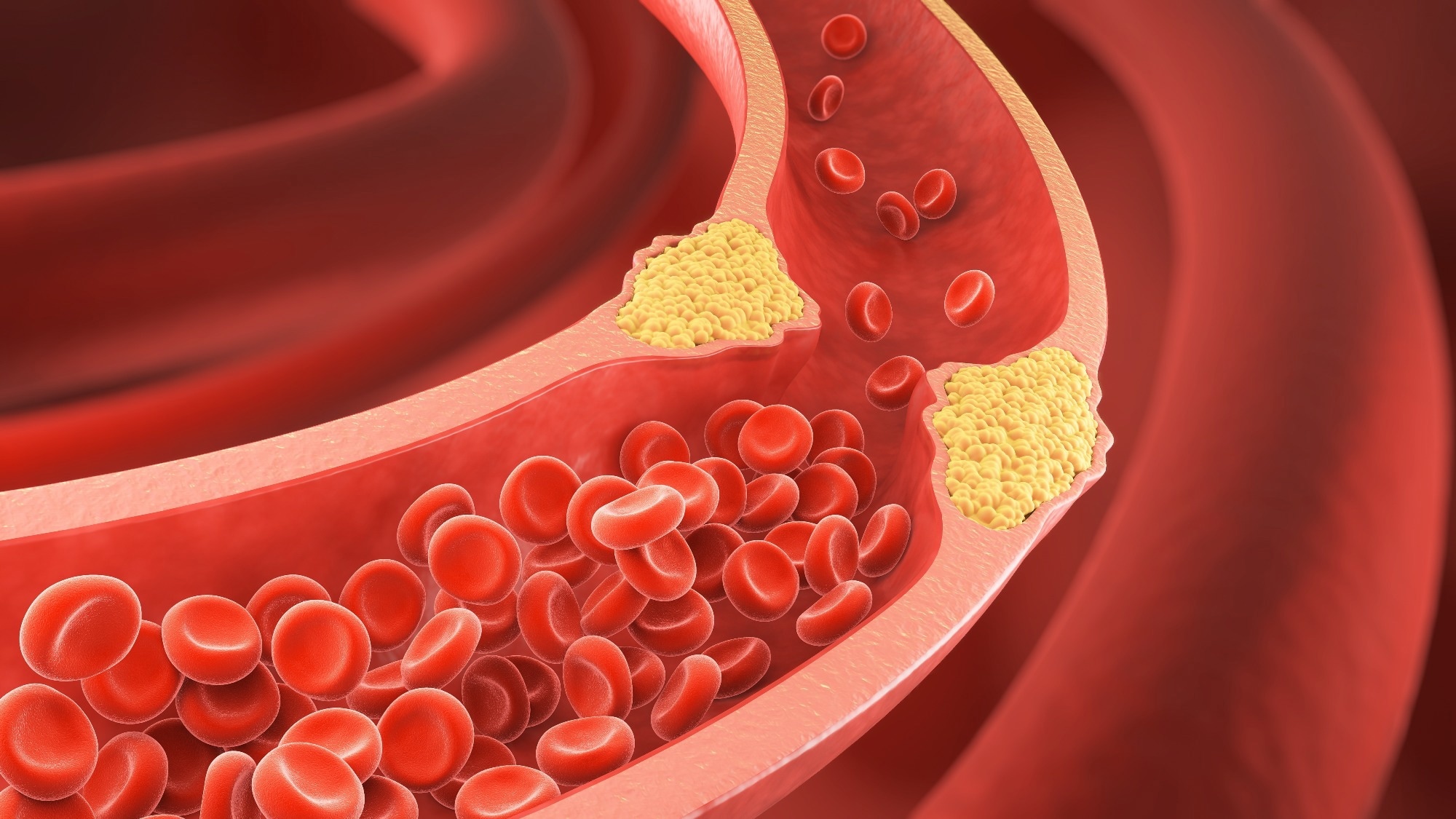A revolutionary gene-silencing technique has shown that a single treatment can dramatically lower LDL cholesterol levels for over a year—without permanently altering DNA. Could this be the future of heart disease prevention?
 Study: A potent epigenetic editor targeting human PCSK9 for durable reduction of low-density lipoprotein cholesterol levels. Image Credit: Anusorn Nakdee / Shutterstock
Study: A potent epigenetic editor targeting human PCSK9 for durable reduction of low-density lipoprotein cholesterol levels. Image Credit: Anusorn Nakdee / Shutterstock
High cholesterol (hypercholesterolemia) is a major risk factor for heart disease, which is a leading cause of death worldwide. While current treatments, such as statins and modulation of low-density lipoprotein (LDL) receptors, can help manage cholesterol levels, they require lifelong use and frequent dosing.
What if a single treatment could provide long-term cholesterol reduction? In a recent study published in the journal Nature Medicine, a team of gene therapy researchers explored an innovative approach using epigenetic editing to silence the proprotein convertase subtilisin/kexin type 9 (PCSK9) gene, potentially offering a durable, one-time treatment for high cholesterol.
Background
Cholesterol management is essential for preventing cardiovascular disease. The PCSK9 protein plays a critical role in regulating cholesterol levels by breaking down LDL receptors, which clear “bad” cholesterol from the bloodstream. Current therapies, such as monoclonal antibodies and ribonucleic acid (RNA)-based treatments, effectively lower PCSK9 activity but require continuous administration.
Gene editing methods such as clustered, regularly interspaced short palindromic repeats (CRISPR) have shown promise, but they involve permanent deoxyribonucleic acid (DNA) changes, raising safety concerns. Epigenetic editing offers a different approach—modifying gene expression without altering the DNA sequence.
About the Study
The present study investigated the potential of epigenetic editing to silence PCSK9, thereby lowering LDL cholesterol with a single treatment. The researchers developed a gene-silencing system that targeted PCSK9, called PCSK9-epigenetic editor (PCSK9-EE). This system uses a modified version of CRISPR to add methyl groups to the PCSK9 gene, effectively turning it off.
They tested this approach in human liver cells, transgenic mice with human PCSK9 genes, and non-human primates. The study involved delivering the PCSK9-EE system using lipid nanoparticles (LNPs) via a single intravenous infusion.
In laboratory experiments, the researchers first tested PCSK9-EE in human liver cells to confirm its ability to suppress PCSK9 expression. Then, they moved on to transgenic mice, which carry human PCSK9 genes, to evaluate the longevity and effectiveness of the treatment. The treatment was monitored over a year to assess its durability.
The researchers also studied whether the silencing effect would persist even if the liver underwent regeneration. They tested this by performing partial hepatectomy, a process that stimulates liver regrowth, on the mice to examine whether the epigenetic modifications remained intact.
Next, the study was extended to non-human primates, where the effectiveness of PCSK9-EE was analyzed through blood tests measuring LDL cholesterol levels. The researchers also performed genome-wide analyses to check for potential unintended genetic modifications. Although minor off-target DNA methylation was observed, it did not lead to significant changes in gene expression, reducing concerns about unintended genetic effects. Liver function tests were also conducted to ensure the treatment did not cause significant toxicity or damage to the liver, and the team monitored liver enzymes and immune responses to assess potential side effects.
Key Findings
The study found that PCSK9-EE significantly reduced PCSK9 levels in all tested models. Gene silencing lasted for weeks in human liver cells, showing promising longevity. In mice, a single treatment led to a greater than 98% reduction in PCSK9 levels and a substantial decrease in LDL cholesterol, which persisted for over a year. The gene-silencing effect was also maintained after liver regeneration, indicating that the epigenetic modification was stable even in dividing cells.
In non-human primates, the PCSK9 levels dropped by nearly 90%, with a corresponding LDL cholesterol reduction of approximately 70%. This reduction is comparable to that achieved by existing cholesterol-lowering drugs but with the advantage of a single-dose administration.
Additionally, the study found that the treatment did not introduce permanent DNA changes, reducing concerns about unintended genetic alterations. Safety monitoring showed only transient liver enzyme elevations, which returned to normal within days. The approach demonstrated high specificity, meaning it largely targeted only the PCSK9 gene without significantly affecting other genes.
However, some variability in response was observed, with certain primates showing lower methylation levels and reduced cholesterol-lowering effects. These differences were likely due to variations in how effectively the drug was absorbed and processed by individual animals.
Furthermore, using a targeted epigenetic activator designed to remove methyl groups from the PCSK9 gene, the researchers also successfully reversed the changes and restored PCSK9 expression in mice. This reversibility provided an additional layer of safety, ensuring that the treatment's effects could be undone if necessary.
Conclusion
Overall, the findings highlighted the potential of epigenetic editing as a transformative therapy for cholesterol management. By silencing the PCSK9 gene without altering DNA, this approach could offer a long-lasting, one-time treatment for high cholesterol.
The study also suggested that epigenetic editing could provide a safer and more durable alternative to conventional gene-editing techniques. However, further investigation is required to assess potential off-target effects and long-term consequences in human applications.
While more research is needed before clinical trials in humans, including extensive safety and efficacy testing, these findings mark a major step toward a new class of precision medicine for cardiovascular disease. If successfully translated to humans, this technique could revolutionize cholesterol management, reducing the burden of daily medications and improving treatment adherence.
Journal reference:
- Tremblay, F., Xiong, Q., Shah, S. S., Ko, C., Kelly, K., Morrison, M. S., Giancarlo, C., Ramirez, R. N., Hildebrand, E. M., Voytek, S. B., Gabriel, Wright, S. H., Lofgren, L., Clarkson, S., Waters, C., Linder, S. J., Liu, S., Eom, T., Parikh, S., & Weber, Y. (2025). A potent epigenetic editor targeting human PCSK9 for durable reduction of low-density lipoprotein cholesterol levels. Nature Medicine. DOI: 10.1038/s41591-025-03508-x, https://www.nature.com/articles/s41591-025-03508-x